From Winnipeg Sun link to article by Manitoba First Nations August 7, 2018

There was much to applaud in the language used in Premier Pallister’s Speech from the Throne last November. The government committed to ‘establishing a renewed and strengthened Duty-to-Consult Framework for respectful and productive consultations with Indigenous communities”. It also spoke of an approach to economic development that is “more effective in delivering new investments in the City of Winnipeg, the capital region and rural and northern Manitoba”. It noted that “red tape and taxes were stifling the economy.” These insights and commitments from Premier Pallister and his government had many Indigenous people nodding their heads in agreement.
We know that the old animosities have not served anyone well. Who benefits when First Nations and governments butt heads besides lawyers and consultants? There must be a better path. In 1960 a Progressive Conservative Prime Minister, John Diefenbaker, made it possible for Status Indians to vote in federal elections without having to surrender their treaty rights. Imagine, until then we were denied a fundamental human right unless we surrendered the commitments given to us by the crown when we negotiated and signed Treaty 1 in 1871 and finalized Treaty 5 in 1905. It was outrageous. But a determined Prime Minister saw an opportunity to right a wrong and to move Canada forward, and he seized it.
As elected Chiefs, we hope that we might also display transformative leadership, the kind that leapfrogs our communities into a new era of respect, opportunity and prosperity for our people and for all Manitobans. Our hope is that we can take the words of the throne speech at face value and begin that conversation with the current Government of Manitoba.
We trust that Premier Pallister also sees this historic opportunity to work with us to build something extraordinary for our peoples.
We operate under no illusions. We have disagreed with the Premier and his government on many issues, sometimes strongly. That’s not unusual. That’s normal. Family members frequently disagree but they are still better off trying to rebuild trust when it has been lost. It’s worth the frustration and the disappointments because the wellbeing of people is at stake. In periods like that, as the premier has often noted we need to be like the bison on our provincial flag, the only animal who, when bracing for a storm, gathers together in a circle and faces into it. We look forward to joining with this government and the premier to facing up to the challenges in our relationship.
We want to begin that process right now by honestly acknowledging that the government has moved quickly on resolving Treaty Land Entitlement issues. They showed great leadership in helping establish a partnership between seven First Nations and Canadian Kraft Paper at The Pas. Grand Chief Dumas of the Assembly of Manitoba Chiefs noted that it had the potential to be a “template” for responsible economic development with First Nations in Manitoba. We need more of that kind of leadership and collaboration because we have a huge opportunity that comes with the legalization of cannabis, effective October 17.
We represent five First Nations who are partnering with the private sector to create incredible economic development opportunities on reserve for our people. For the first time, many First Nations people will have an opportunity for the kinds of jobs and futures that others take for granted, but not without wise government policy. In turn, that requires the kind of consultation referred to in the throne speech. Let’s begin that process now.
Respectfully,
Chief Glenn Hudson, Peguis First Nation; Chief Dennis Meeches, Long Plain First Nation; Chief Christian Sinclair, Opaskwayak Cree Nation and Chief Marcel Moody, Nisichawayasihk Cree Nation, Chief Debbie Smith, Brokenhead Ojibway Nation.



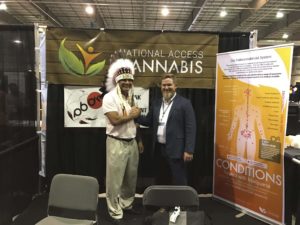
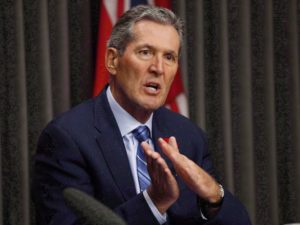






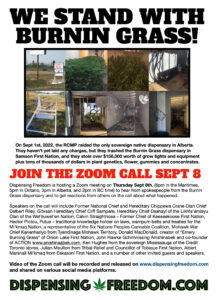
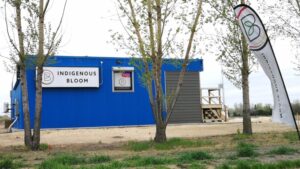
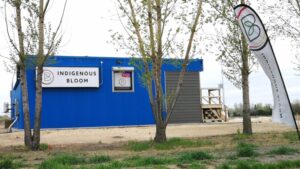






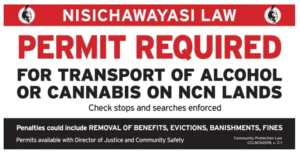


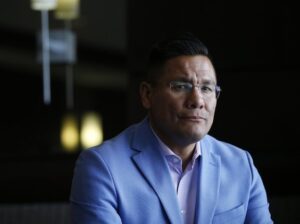




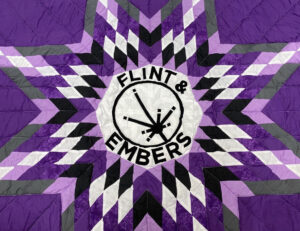


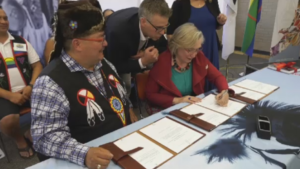



Comments are closed.